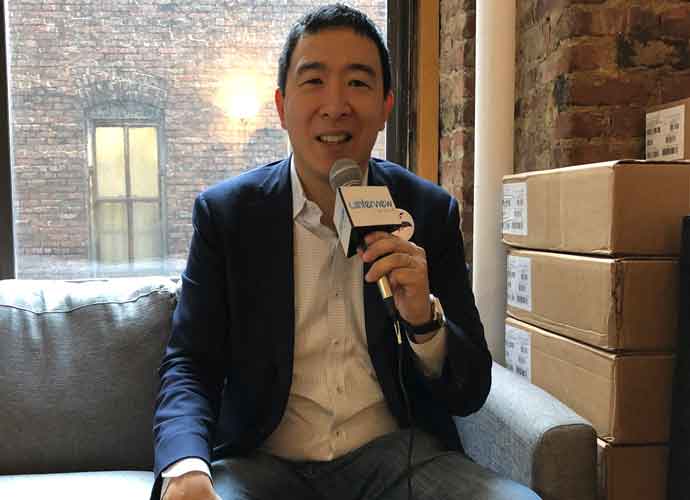Andrew Yang Promises To Give Away $120,000 During Democratic Debate
Democratic presidential candidate Andrew Yang announced during the Democratic debate that he will be giving ten lucky families $1,000 per month for a year.
“I’m going to do something unprecedented tonight,” Yang said in his opening statement. “My campaign will now give a freedom dividend of $1,000 a month for an entire year to 10 American families – someone watching this at home right now. If you believe that you can solve your own problems better than any politician go to Yang2020.com and tell us how $1,000 a month will do just that.”
Yang’s campaign centers on Freedom Dividends, his proposed plan for universal basic income. His system would entitle any American 18 years or older to $1000 per month.
ANDREW YANG EXPLAINS UBI TO uPOLITICS:
Subscribe to our free weekly newsletter!
A week of political news in your in-box.
We find the news you need to know, so you don't have to.
Though the campaign stunt will generate publicity and increase traffic to his website, it will also provide an opportunity to demonstrate the Freedom Dividend in action.
In an interview with NPR’s Politics Podcast in August, Yang had mentioned the idea saying, “I think most Americans would love to participate in an experiment where they got a thousand dollars a month for a year, and the only regret is that it stops after a year, which is something that we can change as a people if we all decide to do so together and pass the Freedom Dividend.”
At this point, he was paying out-of-pocket to test the Freedom Dividend with three families. The additional $120k he is giving out will be financed by his campaign.
Though Yang claims he first consulted the Federal Election Commission to confirm the legality of the move, it has raised eyebrows among the legal community.
Under FEC regulations, candidates may not use campaign money for “personal use,” or expenses that would exist regardless of whether the campaign existed.
“Handing out money to individuals for their own personal use would seem to be a violation of campaign-finance law,” former FEC attorney Erin Chlopak said in an interview with Time. “It’s hard for me to envision how taking campaign funds and just handing it out to individuals would not violate the personal use prohibition.”
His campaign argued that the $120k expense would not exist without his candidacy as therefore does not violate the “personal use” clause.
Yang has also denied that this is a means of buying votes, using one recipient of his personally financed Freedom Dividends as an example.
“Well, there’s no obligation for anyone who’s receiving the money, and the person in Florida, there’s a chance that she may never vote for me,” he said in the NPR interview. “So it’s not a bribe in any sense because it’s a gift of a thousand dollars a month, and people can do whatever they want.”
Fast Company called Yang’s announcement “possibly the best email-collection scheme ever devised by a politician.” Those wishing to enter are required to submit their name, email and zip code.
The privacy policy on the campaign website confirms that this information will be stored stating that, “we collect any information you provide when you update your user account and profile (“User Account”); participate in contests, surveys, and other promotions; and sign up to receive newsletters and other communications.”
The policy also says that the saved information may be used to send Yang promotional emails, notifications about promotions and events, as well as location-tailored content.
Get the most-revealing celebrity conversations with the uInterview podcast!






Leave a comment